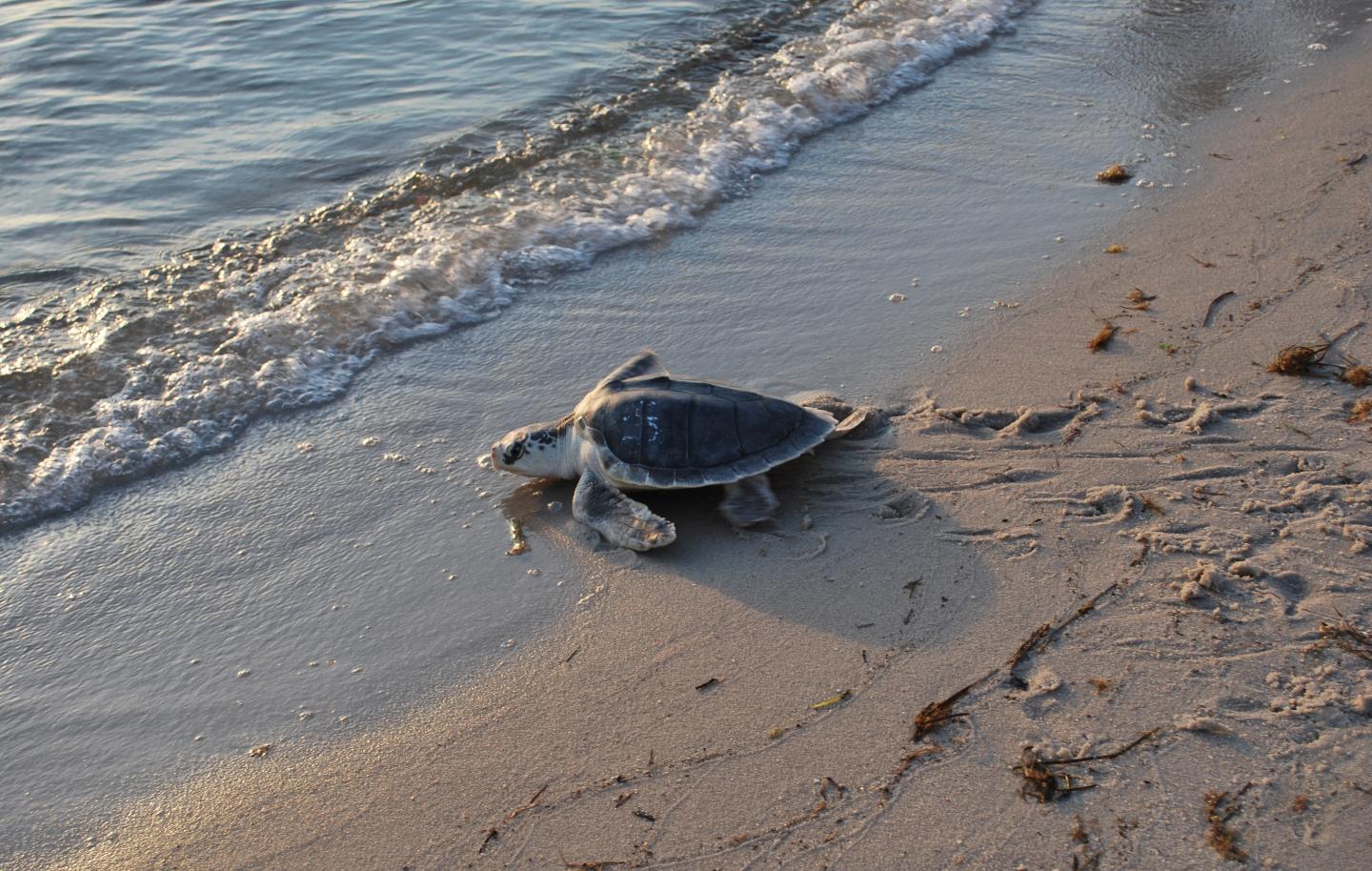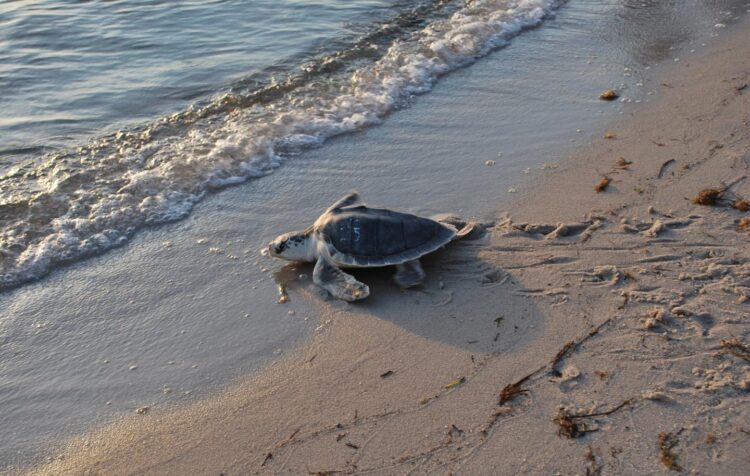
Credit: Connie Merigo/New England Aquarium
BOSTON, MASS. (June 16, 2020) – A new study co-authored by six scientists with the New England Aquarium has found that rehabilitated Kemp’s ridley and loggerhead sea turtles experience a substantial stress response when transported to release locations in the southern United States but that the turtles remained physically stable and ready for release.
Every year, dozens and even hundreds of “cold-stunned” turtles are treated at the Aquarium’s Quincy Animal Care Center for a variety of life-threatening medical conditions that result from weeks of hypothermia and the inability to feed during stranding season. Typically, the stranding season begins in early November and runs through early January when New England water temperatures quickly turn cold and the turtles get stuck on the north side of Cape Cod. The turtles are then rescued and rehabilitated for two to eight months. When the time comes to be released back into the wild, the turtles must enter the ocean at beaches with appropriate water temperatures, often requiring transportation to southeastern states by climate controlled SUV or van. These transports may take up to 24 hours, and can induce a stress response.
“As for humans, traveling many hours over long distances can be stressful for turtles. We wanted to characterize the degree of the stress response and document whether the turtles were still in good condition after such a long trip,” said Dr. Charles Innis, Director of Animal Health at the New England Aquarium.
Until now, the full impact of the transport process was unclear. In this new study, led by Dr. Kathleen Hunt of George Mason University and published in the journal Integrated Organismal Biology, all turtles had stranded in a cold-stunned state along the shore of Cape Cod Bay between October and December of 2011-2017 and were rehabilitated at the Aquarium’s Animal Care Center for six to eight months. During trips to release the turtles back into the wild, scientists studied the responses of Kemp’s ridley and loggerhead turtles before and after vehicle transport for under six hours, 12 hours, 18 hours, and 24 hours, gathering blood samples.
The researchers found that transport induced a physiological stress response for both sea turtle species. The duration of those transports significantly affected the stress responses, with both species showing more pronounced changes on longer journeys. Importantly, despite the findings, both turtle species in the study remained in good clinical condition based on evaluation of vital signs and blood data, even after 24-hour transport. Nonetheless, the researchers suggest that minimizing transport time, when possible, may help to ensure that rehabilitated turtles are released into the ocean under the best possible conditions.
“Results of this study will be used to ensure that sea turtle transports are conducted under controlled environments and at safe durations,” said Connie Merigo, Marine Animal Rescue Department Manager. “This study will be helpful to the global community of sea turtle rehabilitators, veterinarians, researchers and biologists.”
###
In addition to Dr. Innis and Merigo, the study is co-authored by Elizabeth Burgess, PhD, a Research Scientist with the Aquarium’s Anderson Cabot Center for Ocean Life; Adam Kennedy and Linda Lory, both Senior Biologists at the Quincy rehab center; and Kerry McNally, PhD, a Senior Biologist in the Aquarium’s Animal Health department. Their work was supported by the Morris Animal Foundation, the New England Aquarium, the Arizona Board of Regents Technology Research Initiative Fund, and the Smithsonian-Mason School of Conservation / George Mason University.
Media Contact
Pam Bechtold Snyder
[email protected]
Original Source
https:/
Related Journal Article
http://dx.





